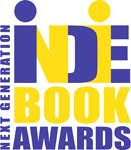My mother is moving into an assisted living apartment this month.
It's not that she is leaving the house where I grew up or anything, so the move is not laden with all the angst of losing the family homestead. She is moving from an "independent living" apartment to a "personal care" apartment in the same retirement complex.
It couldn't be much easier. They're giving us most of a month to clear out the old place while she gets settled in the new. While the new apartment is smaller, most of her furniture will fit. They are very supportive there--trying to make Mom feel at home. She will get more help with her medications, three meals a day, and they'll even do her laundry. In many ways, it could not be a better move.
What is she losing? Not much in real terms. She no longer has a patio garden, but she had stopped tending it. She no longer has her bird feeders, but she had stopped filling them. She no longer has a full kitchen, but all she made there was coffee and cinnamon toast in the morning and an occasional lunch of microwaved leftovers. She used her oven to store groceries.
But her move still makes me sad.
It is not just the fact that the walk to the old dining room had become so long that she never went anymore, asking that the one meal provided each day be brought to her apartment. It isn't that she now needs a walker or a transport chair to make any but the shortest trips. It isn't even that she had become so confused by her medications that she needs someone to bring them to her four times a day to make sure she takes the right ones at the right times. These are the obvious signs of her growing older.
As I go through the things that will not go into her apartment, though, I see other evidence of her gradual decline. As her memory failed, she made hundreds of notes to herself. The older ones were about whom to call to have dry cleaning picked up and what places would deliver food. Newer ones were dozens of notes with my phone number, and reminders of how to dial the phone. This is the woman who taught me to use a phone, and now it is almost beyond her ability to use one herself. In the six years she lived there, she went from a person who drove, made her own appointments and kept them, and really could live independently, to one who has given up her car, cannot keep track of her calendar, and can barely manage with an enormous support system around her.
She is still better off than many in her facility. She can bathe herself. She can dress herself. She can find her way to the dining room. But she cannot remember how to turn on her television, and has forgotten that there is a list of the channels she would most enjoy taped to the back of her remote control. She cannot track a conversation, and ends up in a feedback loop of asking the same questions over and over. She has lost the ability to follow what she reads; no magazines or newspapers come to her door anymore. It is not just her apartment size that is shrinking--so is her world.
The last thing she would ever want is to be a burden. That is the reason she decided to move into the retirement facility six years ago. They guarantee her care for the rest of her life.
While she is never a burden, she is a responsibility. I am the only one of her four children who is within three hundred miles of her. Only I, along with my wonderful family, am in a position to keep her world from becoming even smaller, or her days from becoming a monotonous string of emptiness. I try to keep the more distant family alive in her memory, even though she sometimes has trouble recognizing their names or even their faces.
And one day, I know, she will have trouble recognizing me. As sad as this day is, that one will be much worse.







